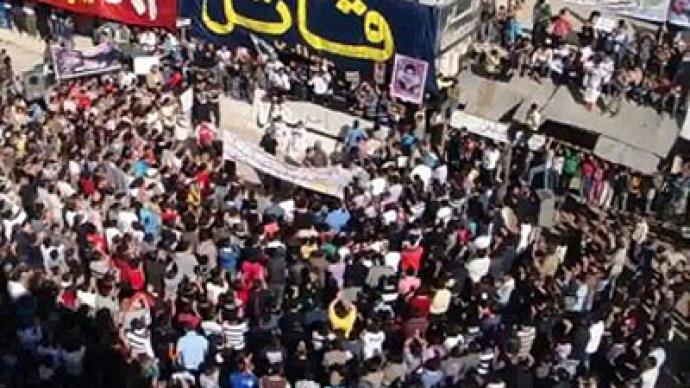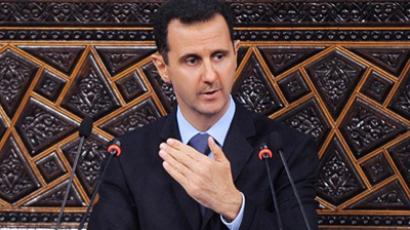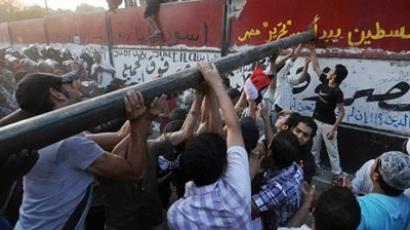Arab League roadmap: Dead or doing fine?

As the Arab League is preparing for an emergency meeting to discuss the violent riots in Syria, the debate unfolds over whether the roadmap to peace brokered by the organization is viable.
Some countries, who are criticising the regime of Bashar Assad for the seven month-long crackdown on the opposition, say the plan is effectively finsihed, because the Syrian government does not honor it.“I am sure that the current initiative of the Arab League is dead,” French Foreign Minister Alain Juppe said on Tuesday in an interview with the Asharq Alawsat newspaper. He added this does not mean that the Arab organization’s mediation in the conflict should be discarded.Damascus sees the situation differently. The Syrian ambassador to Russia, Riyad Mohammad Haddad said Friday his government did most of the things the roadmap required it to.“We complied with 75 or 80 percent of the demands,” he said.The ambassador said that Damascus is replacing army troops with police all over the country with the exception of the city of Homs. It allowed journalists into the cities, which had been previously off-limits to the media.The government has also announced a general amnesty for protestors, as the roadmap said they should, the diplomat said. He added Damascus was very surprised to hear statements of the US State Department calling on the protestors not to use the opportunity offered by the amnesty.The call was last re-iterated by Deputy Spokesperson Mark Toner on Thursday. Syria says it’s the latest evidence of America’s tampering with Syrian internal affairs. The US has been continuously stating that Assad has lost legitimacy and must step down.UN estimates that the violent riots in Syria have claimed more than 3.500 lives since they started in mid-March. The Syrian government says many of the victims were soldiers and policemen killed in the line of duty by extremist gangs sponsored with money and smuggled weapons from abroad. Critics of the regime say it is responsible for the majority of violence in the country.On Friday, Amnesty International said Assad’s government is guilty of crimes against humanity. It called the Arab League to expel Syria from its ranks. It also called on the UN Security Council to put an arms embargo on the country.The Arab League's ministerial meeting on Saturday is to review the developments in the country. Media reported that the organization may issue tough sanctions against Syria over the non-compliance with the roadmap, but no official confirmation was voiced.Professor of International Relations, Mark Almond has told RT that in his view the big problem now is that not only Syria itself but even the neighboring countries have been drawn into this cycle of violence.“I think it is naïve to hear sometimes in the West when we think that a dictator and regime like Assad’s has now support and at the same time – that opposition must inherently always be composed only of good, well-intentioned people. There are actually a variety of groups that do not like Assad’s regime, and some of them are rather militantly committed to replacing the secular regime with a Sunni-Fundamentalists regime.”
Middle East expert Dr. Hisham Ghassib argues that events in Libya and Syria cannot be called revolutions.
“What we are witnessing is a conflict, and we have to understand the nature of this conflict. [We have seen] a genuine revolution in Tunisia, in Egypt and to a certain extent in Yemen and, perhaps, in Bahrain – but not in Libya and Syria.”
He concedes that it may have started as an internal conflict within Syria, but it then turned into a geopolitical one.
“That is ‘an unholy alliance’ between certain Western powers on the one hand, certain Gulf States and Fundamentalist groups attacking the Syrian regime – not for democratic purposes, but for geopolitical ones,” Dr. Ghassib said.
He also added that the situation in today’s Syria resembles that in another country in the past.
“What is happening in Syria reminds me of what happened in Nicaragua twenty years ago, when the Contras were organized by the Americans in order to attack the Nicaraguan regime.”














